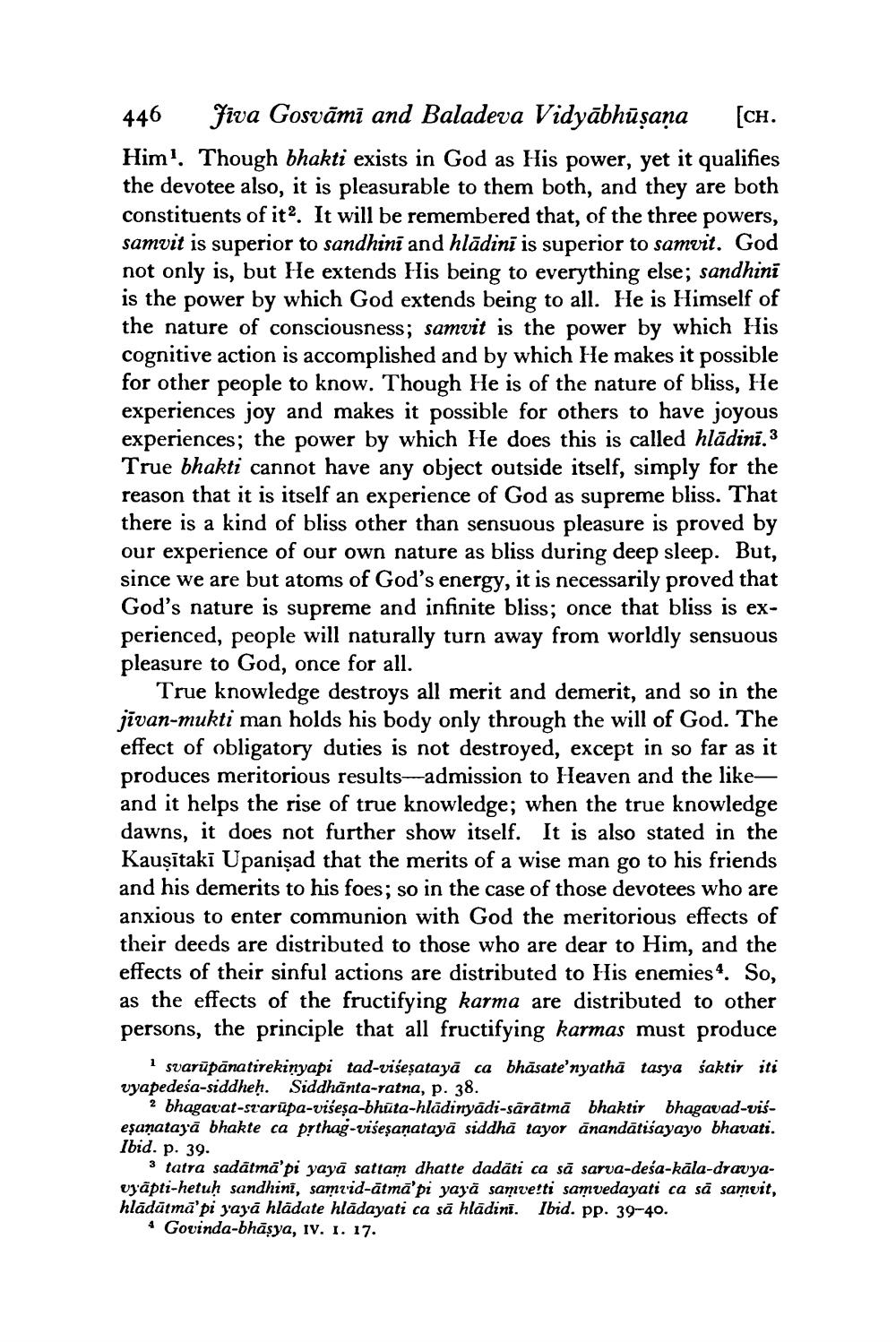________________
446 Jiva Gosvāmi and Baladeva Vidyābhūṣaṇa
[CH.
Him'. Though bhakti exists in God as His power, yet it qualifies the devotee also, it is pleasurable to them both, and they are both constituents of it2. It will be remembered that, of the three powers, samvit is superior to sandhini and hladini is superior to samvit. God not only is, but He extends His being to everything else; sandhini is the power by which God extends being to all. He is Himself of the nature of consciousness; samvit is the power by which His cognitive action is accomplished and by which He makes it possible for other people to know. Though He is of the nature of bliss, He experiences joy and makes it possible for others to have joyous experiences; the power by which He does this is called hladini.3 True bhakti cannot have any object outside itself, simply for the reason that it is itself an experience of God as supreme bliss. That there is a kind of bliss other than sensuous pleasure is proved by our experience of our own nature as bliss during deep sleep. But, since we are but atoms of God's energy, , it is necessarily proved that God's nature is supreme and infinite bliss; once that bliss is experienced, people will naturally turn away from worldly sensuous pleasure to God, once for all.
True knowledge destroys all merit and demerit, and so in the jīvan-mukti man holds his body only through the will of God. The effect of obligatory duties is not destroyed, except in so far as it produces meritorious results-admission to Heaven and the likeand it helps the rise of true knowledge; when the true knowledge dawns, it does not further show itself. It is also stated in the Kauṣitaki Upanisad that the merits of a wise man go to his friends and his demerits to his foes; so in the case of those devotees who are anxious to enter communion with God the meritorious effects of their deeds are distributed to those who are dear to Him, and the effects of their sinful actions are distributed to His enemies1. So, as the effects of the fructifying karma are distributed to other persons, the principle that all fructifying karmas must produce
1 svarūpānatirekinyapi tad-viseṣataya ca bhāsate'nyatha tasya saktir iti vyapedeśa-siddheḥ. Siddhanta-ratna, p. 38.
2 bhagavat-svarupa-višeṣa-bhūta-hladinyādi-sārātmā bhaktir bhagavad-viseṣaṇataya bhakte ca prthag-viseṣaṇataya siddha tayor anandātiśayayo bhavati. Ibid. p. 39.
3 tatra sadātmā'pi yayā sattam dhatte dadāti ca să sarva-deśa-kāla-dravyavyapti-hetuḥ sandhini, samvid-ātmā'pi yayā samvetti samvedayati ca să samvit, hlādātmā' pi yaya hlädate hladayati ca să hladini. Ibid. pp. 39-40.
4 Govinda-bhāṣya, IV. I. 17.




